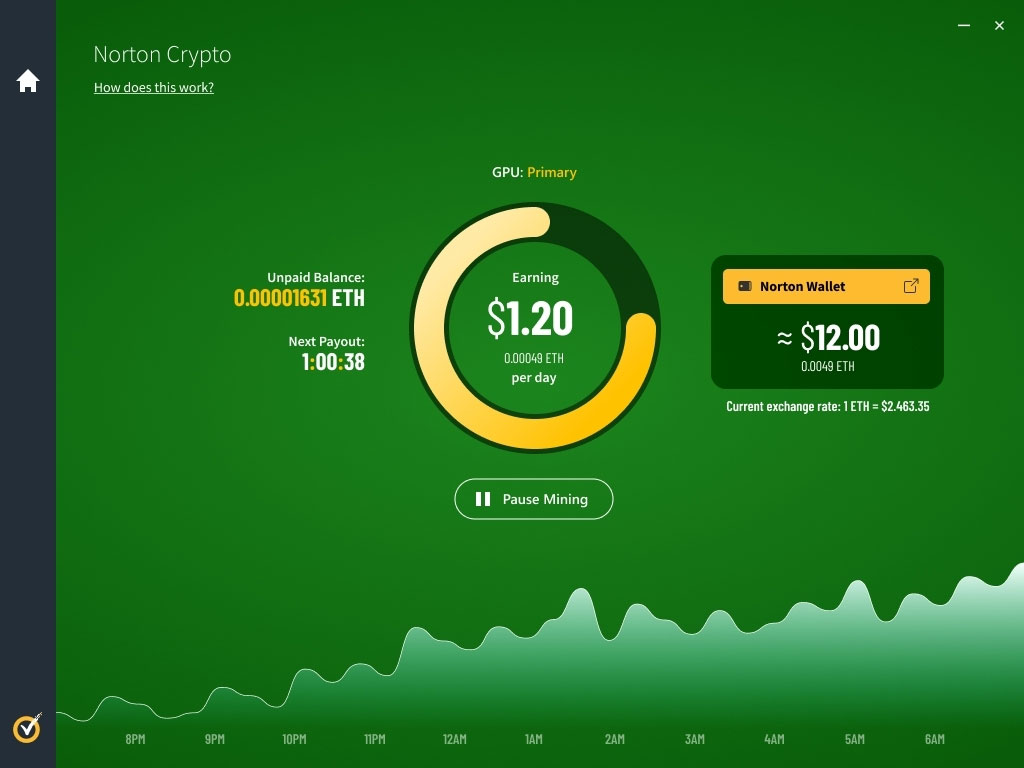Norton installs an Ethereum crypto miner with its 360 security suite
Convenient and trustworthy or a scumbag predatory move?

Norton is facing criticism for including a cryptocurrency mining program with its 360 security suite. Though Norton has been upfront about its plan to include the software, the move has generated a lot of backlash. Norton claims the miner is secure and reliable but the move raises concerns about the mechanics and ethics behind it.
Norton Crypto is turned off by default, but many users aren’t happy having it installed at all for various reasons including possible security concerns, suspicions, an aversion to crypto or environmental concerns among others. There’s also worries that the miner cannot be easily uninstalled. Could a malware app hijack the software and point it to a hacker’s wallet? If it happens to Norton—a security suite provider—then anything is possible.

The program mines Ethereum to a pool made up of other Norton users. The rose-colored glasses view is that it makes it easy for non crypto savvy users to take their first steps into the crypto ecosystem via easy to use software that's provided by a trusted software developer. Given the proliferation of shady crypto malware, that's an understandable and some would say, positive development.
Norton’s miner will only run if it meets basic system requirements, so if you’re running an older or under spec machine of which there are countless millions, then it won’t run at all. So, while the miner is optional, transparent and run by a (mostly) reputable software company, that’s about where the positives end.

Best CPU for gaming: the top chips from Intel and AMD
Best graphics card: your perfect pixel-pusher awaits
Best SSD for gaming: get into the game ahead of the rest
Norton’s miner charges a 15% pool fee, which is frankly, ridiculous. Most Ethereum pools charge 1 or 2%, with a further small fee for the developer of the mining software. That's a far cry from Norton's 15%. When you add the cost of Ethereum’s transaction fees, which are very high in recent times due to network load, it's not easy to see how a user can make much of a profit. Then there’s the cost of electricity on top of that. In some cases, a user could end up in the red.
Perhaps the biggest issue is that Norton Crypto will expose users who don’t understand how crypto works. Norton deserves to be criticized for dangling the carrot of ‘free money’ in front of someone that doesn’t understand what they’re in for or the mechanisms behind crypto mining. It raises all kinds of ethical, social and economic concerns. Many would consider Norton’s actions to be predatory.
Whatever happens, Norton will be laughing all the way to the bank thanks to that rip-off 15% fee and if it starts raking in millions of dollars, it's only a matter of time before other legitimate software providers follow suit. Ethereum’s shift to Proof of Stake can’t come quickly enough. At least then a graphics card might actually become a graphics card again, and not a mining card.
Keep up to date with the most important stories and the best deals, as picked by the PC Gamer team.

Chris' gaming experiences go back to the mid-nineties when he conned his parents into buying an 'educational PC' that was conveniently overpowered to play Doom and Tie Fighter. He developed a love of extreme overclocking that destroyed his savings despite the cheaper hardware on offer via his job at a PC store. To afford more LN2 he began moonlighting as a reviewer for VR-Zone before jumping the fence to work for MSI Australia. Since then, he's gone back to journalism, enthusiastically reviewing the latest and greatest components for PC & Tech Authority, PC Powerplay and currently Australian Personal Computer magazine and PC Gamer. Chris still puts far too many hours into Borderlands 3, always striving to become a more efficient killer.

